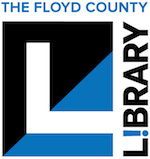April is Arab American Heritage Month! Not familiar with the term “Arab-American”? According to the Arab American Anti-Discrimination Committee, “Arab” is a term that refers to people who speak Arabic as their first language. They may or may not be Muslim (most Arabs are Muslims, but most Muslims are not Arab). According to their website: “The Arab World consists of 22 countries in the Middle East and North Africa: Algeria, Bahrain, the Comoros Islands, Djibouti, Egypt, Iraq, Jordan, Kuwait, Lebanon, Libya, Morocco, Mauritania, Oman, Palestine, Qatar, Saudi Arabia, Somalia, Sudan, Syria, Tunisia, the United Arab Emirates, and Yemen.”
I posted a selection of Arab American books for all ages last year, so if you’re looking for general options to read some Arab American literature, check out that post. Today I wanted to focus on LGBTQ+ titles for Arab American Heritage Month.
You can join us next week for Reading the Rainbow (our monthly LGBTQ+ book discussion) to talk about The Thirty Names of Night by Zeyn Joukhadar!
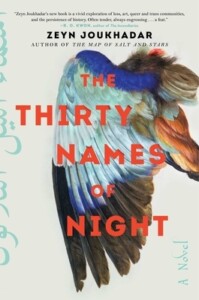
The Thirty Names of Night by Zeyn Joukhadar (2021). Five years after a suspicious fire killed his mother, a closeted Syrian American trans boy sheds his birth name and searches for a new one. He has been unable to paint since his mother’s ghost has begun to visit him each evening. The only time he feels truly free is when he slips out at night to paint murals on buildings in the once-thriving Manhattan neighborhood known as Little Syria. One night, he finds the tattered journal of a Syrian American artist named Laila Z. She famously and mysteriously disappeared more than sixty years before, but her journal contains proof that Laila Z’s past is intimately tied to his mother’s-and his grandmother’s–in ways he never could have expected. Even more surprising, Laila Z’s story reveals the histories of queer and transgender people within his community that he never knew. Following his mother’s ghost, he uncovers the silences kept in the name of survival by his own community, his own family, and within himself, and discovers the family that was there all along.

From Here by Lula Mufleh (2023). With no word for “gay” in Arabic, Luma may not have known what to call the feelings she had growing up in Jordan during the 1980s, but she knew well enough to keep them secret. It was clear that not only would her family have trouble accepting her, but trapped in a conservative religious society, she could’ve also been killed if anyone discovered her sexuality. Luma spent her teenage years increasingly desperate to find a way out, and finally found one when she was accepted into college in the United States. Once there, Luma begins the agonizing process of applying for political asylum, which ensures her safety–but causes her family to break ties with her. As hopeful as it is heartrending, From Here is a coming-of-age memoir about one young woman’s search for belonging and the many meanings of home for those who must leave theirs.
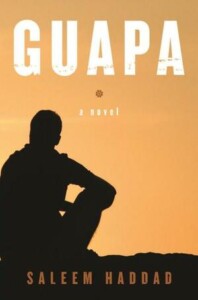
Guapa by Saleem Haddad (2016). Rasa spends his days translating for Western journalists and pining for the nights when he can sneak his lover, Taymour, into his room. One night Rasa’s grandmother – the woman who raised him – catches them in bed together. The following day Rasa is consumed by the search for his best friend, Maj, a fiery activist and drag queen star of the underground bar Guapa, who has been arrested by the police. Ashamed to go home and face his grandmother, and reeling from the potential loss of the three most important people in his life, Rasa roams the city’s slums and prisons, the lavish weddings of the country’s elite, and the bars where outcasts and intellectuals drink to a long-lost revolution. Each new encounter leads him closer to confronting his own identity as he revisits his childhood and probes the secrets that haunt his family.
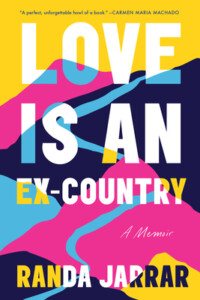
Love is an Ex-Country by Randa Jarrar (2021). A gay, Muslim, overweight, Arab-American woman describes her road trip from California to Connecticut to reclaim her autonomy and explore everything she has survived in life, schooling a rest-stop racist and destroying Confederate flags in the desert along the way.
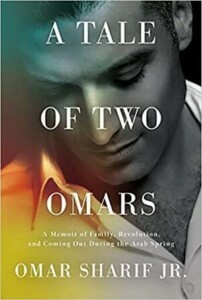
A Tale of Two Omars: A Memoir of Family, Revolution, and Coming Out During the Arab Spring by Omar Sharif, Jr. (2021). The grandson of Hollywood royalty on his father’s side and Holocaust survivors on his mother’s, Omar Sharif Jr. learned early on how to move between worlds, from the Montreal suburbs to the glamorous orbit of his grandparents’s Cairo. His famous name always protected him wherever he went. When in the wake of the Arab Spring he made the difficult decision to come out in the pages of The Advocate, he knew his life would forever change. What he didn’t expect was the backlash that followed. From bullying, to illness, to attempted suicide, to becoming a victim of sex trafficking, to death threats by the thousands, to revolution and to be never being able to return to a country he once called home, Omar Sharif Jr. has overcome more challenges than one might imagine. Drawing on the lessons he learned from both sides of his family, A Tale of Two Omars charts the course of an iconoclastic life, revealing in the process the struggles and successes that attend a public journey of self-acceptance and a life dedicated in service to others.
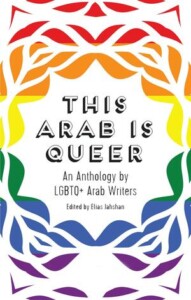
This Arab is Queer: An Anthology by LGBTQ+ Arab Writers (2022). This ground-breaking anthology features the compelling and courageous memoirs of eighteen queer Arab writers some internationally bestselling, others using pseudonyms. Here, we find heart-warming connections and moments of celebration alongside essays exploring the challenges of being LGBTQ+ and Arab. From a military base in the Gulf to loving whispers caught between the bedsheets; and from touring overseas as a drag queen to a concert in Cairo where the rainbow flag was raised to a crowd of thousands, this collection celebrates the true colors of a vibrant Arab queer experience.
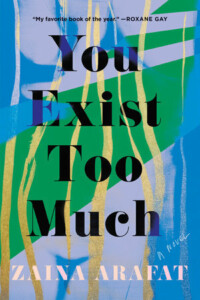
You Exist Too Much by Zaina Arafat (2020). On a hot day in Bethlehem, a twelve-year-old Palestinian-American girl is yelled at by a group of men outside the Church of the Nativity. She has exposed her legs in a biblical city, an act they deem forbidden, and their judgement will echo on through her adolescence. When our narrator finally admits to her mother that she is queer, her mother’s response only intensifies a sense of shame: ‘You exist too much,’ she tells her daughter. Told in vignettes that flash between the U.S. and the Middle East–from New York to Jordan, Lebanon, and Palestine–Zaina Arafat’s debut novel traces her protagonist’s progress from blushing teen to sought-after DJ and aspiring writer.
